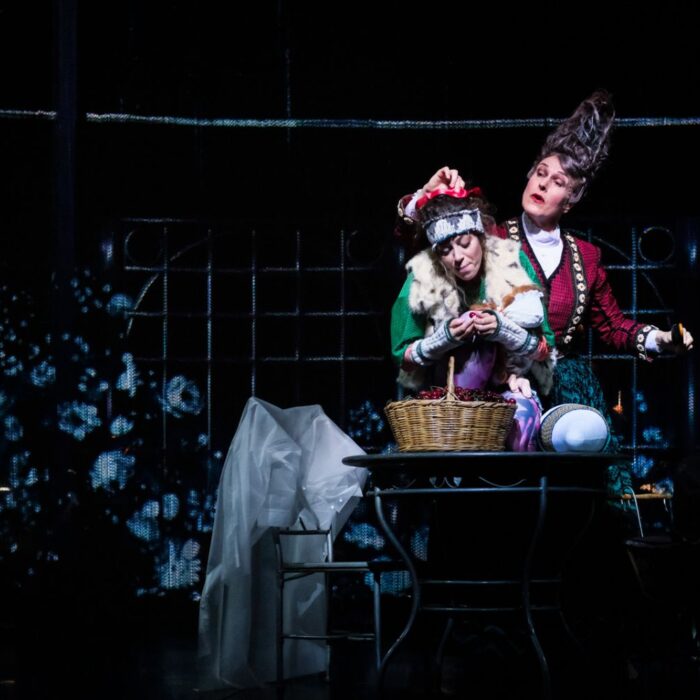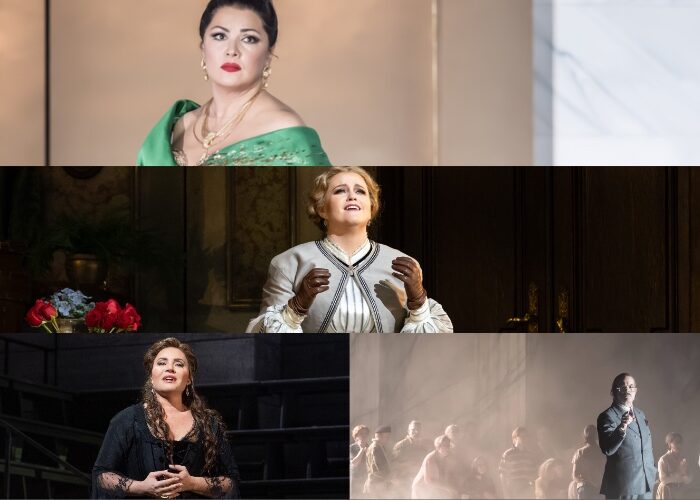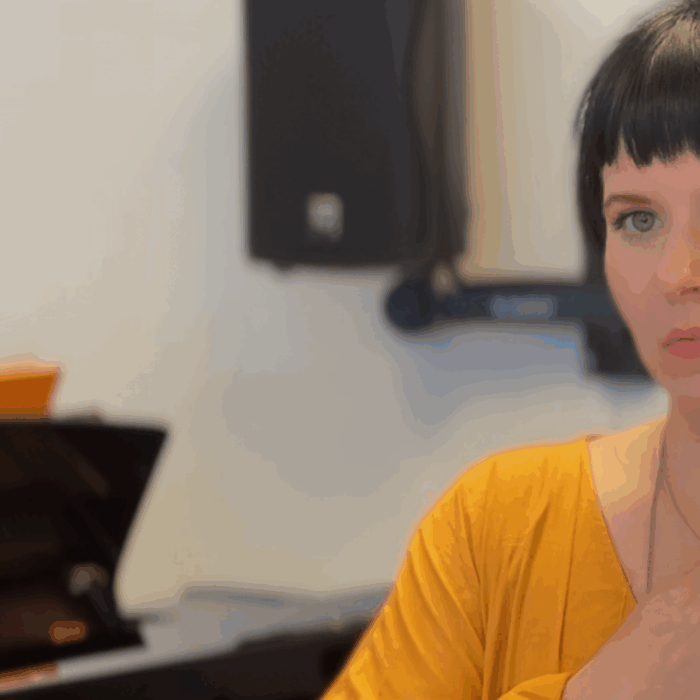
The Ring in San Francisco – Three Sopranos on ’Becoming Brünnhilde’
By Lois SilversteinSan Francisco Opera is in the midst of its month-long festival dedicated to Wagner’s “Ring Cycle.” In the coming weeks, Lois Silverstein will explore her experience not only revisiting the 2018 opera production, but several of the events and panels presented by the company.
Three Brünnhildes at one go! That’s what the Virtual Ring Festival cooked up before streaming “Siegfried.”
And what Brünnhildes they were: Swedish soprano Nina Stemme, English soprano Jane Eaglen, and Swedish soprano Iréne Theorin, the Brunnhilde of the 2018 production that has been treaming over the past few weeks. Stephen Brown, retired company manager of the Metropolitan Opera, facilitated the conversation. Happily, Brown said, however formidable each was as a performer, none of them brought spears!
All three have sung multiple Brünnhildes, in the U.S. and in Europe. Stemme and Theorin sang Sieglinde before Brünnhilde; Eaglen was offered the role but it did not come about.
Stemme, a global artist, known for some of the most challenging parts in the dramatic soprano repertory: Isolde, Brünnhilde and Kundry, Salome and Elektra, Minnie, and Turandot.
So is Eaglen, a world-famous performer of the dramatic soprano repertory, including Norma, Senta, Ortrud, Lady Macbeth, and Donna Anna as well as Turandot.
Finally, Theorin is a regular guest at opera houses and concert venues across the world today. She is associated “with German dramatic repertoire she has been given huge acclaim “for her intense musicality, engaging performances, and vocal flexibility.” She too has performed many of the major dramatic soprano roles.
Brown framed questions about general vocal issues, empathy with the heroine-character, experiences each has had in different productions, empathy with Siegfried himself. Needless to say, it was a diverse set of answers, provocative and stirring.
All loved Brünnhilde as a heroine. Each one performed all three Brünnhildes, some serially, some one at a time. Nina Stemme spoke of there being five musical Brünnhildes she develops when she performs the entire cycle. Jane Eaglen emphasized the oneness of her character which she portrayed as evolving from one opera to the next. Iréne Theorin particularly enjoys that evolution from Brunnhilde to the next, but also of playing Sieglinde before playing her “next sister.” She felt, as did Stemme, Sieglinde’s humanness helps to prepare for Brünnhilde’s.
Besides the need for good shoes, and not being hungry during the performance, each subscribed to the necessity for having developed her voice and through a variety of roles like Donna Anna in Mozart to Elektra, to Turandot, which Stemme and Eaglen have both sung in San Francisco. Eaglen spoke of singing bel canto before as well, developing the beautiful line as well as the tone. Stemme concurred. It is necessary, of course, to keep one’s energy up, however possible. Eaglen spoke of one performance in which she had to wear a leather cloak that weighed at least fifty pounds. We’d say that was more than stamina, in fact. It’s like being an athlete at the top of her sport.
Eaglen joked that as a child she was able to cry a long time, in fact, longer than her mother could stand; at least, stamina wasn’t a problem. In fact, she joked about having asked Zubin Mehta if he were game to do the three different Brünnhildes in one day. He said yes. Theorin talked of being able to perform the three different Brünnhildes in three days! Further, she was able, by becoming very disciplined, to do all the roles in the cycle nine times in three weeks. Again, we’re speaking of stamina. Nina Stemme spoke about Brünnhilde being a role in which she has an out-of-body experience. To her, it is like the music was singing her. When she performs it, she commented, it’s as if the singing happens automatically.
The main thing Eaglen stressed that Brünnhilde learns to love and become human from the beginning and playing/singing Sieglinde, the human element is there and we follow Brünnhilde from that into the next characterization. Theorin spoke of how much you have to risk playing her. The more you do it, she said, the more you dare. She accented, in fact, that she doesn’t like to think too much about it on stage; that she throws herself into the role and lets it emerge out of what is happening. All had tremendous empathy for Sieglinde and wanted very much “to save her.”
An intriguing question related to Theorin in particular, since she performed in Danish director Kaspar Holten’s production while she was pregnant; in other words, a Brünnhilde as maternal as it gets. Theorin said she thought Wagner wouldn’t object at all. Noticeable, indeed, at the end of the performance, after the last note, Theorin went downstairs in the opera house and came back up with a real baby, her newborn.
Do you like Siegfried? Brown asked each of the heroines.
Stemme said, “One has to,” but implied that was it. Eaglen teased he was the kind of “boyfriend” her friends would wonder what she saw in him! When Brown asked if they liked Brünnhilde, they all said they loved her. They loved her intelligence, her desire to learn, that she used all parts of herself, that the development of her personality is what you want for a woman, although it is heartbreaking what she has to go through. It is not, Stemme says, that she has to save the world.
Categories
Special Features

